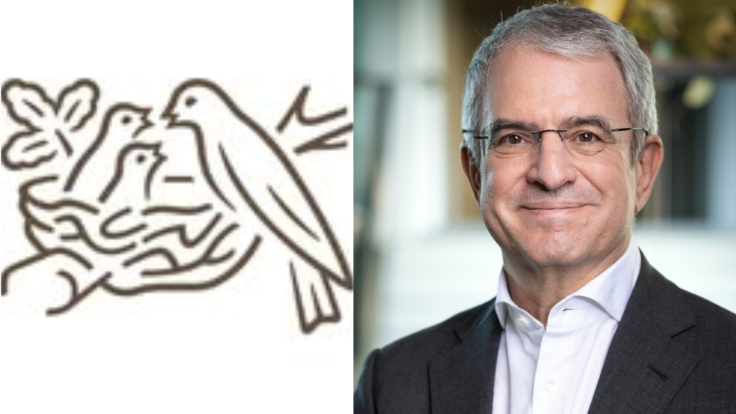Nestlé Chief Ousted After 'Affair With Colleague' — Proof Europe Is Now Playing by America's Corporate Rules
Laurent Freixe's dismissal marks a turning point in Europe's approach to executive misconduct and boardroom ethics

The sudden dismissal of Nestlé CEO Laurent Freixe has sent shockwaves through European boardrooms, marking a watershed moment in corporate governance across the continent.
Freixe, who had held the top job for just one year, was removed following an internal investigation into an undisclosed romantic relationship with a direct subordinate, which was a breach of Nestlé's code of conduct that has reignited debate over executive accountability and workplace ethics.
Nestlé confirmed on 1 September 2025 that Freixe had been dismissed with immediate effect after failing to disclose the relationship, which was flagged via the company's internal whistleblowing channel, Speak Up.
Although an initial internal review found no substantiated breach, persistent concerns led to a second, external investigation overseen by Chairman Paul Bulcke and Lead Independent Director Pablo Isla, with support from Swiss law firm Baer & Karrer.
Freixe, who spent nearly four decades at Nestlé, initially denied the relationship to the board. However, the inquiry ultimately upheld the allegations, prompting what Bulcke described as a 'necessary decision' to enforce the company's values. Nestlé confirmed that Freixe will not receive an exit package.
A Cultural Shift in European Governance
The dismissal has been widely interpreted as a sign that European corporations are adopting a more American-style approach to executive oversight.
In the United States, CEOs have long faced swift consequences for personal misconduct, particularly when it intersects with power dynamics in the workplace. Europe, by contrast, has traditionally been more reserved in its handling of such matters, often favouring discretion over public accountability.
In remarks published by HR Grapevine, Nick Henderson-Mayo, Head of Compliance at VinciWorks, highlighted the broader ramifications of the CEO's dismissal:
'For executive governance, this is a significant moment revealing that no one is above the code,' he said.
'Transparency must be foundational, not optional. By putting in place mandatory disclosure procedures, clear consent guidelines, and training that emphasises how power disparities can skew relationships, organisations must move from reactive investigations to proactive prevention.'
Legal experts have echoed this sentiment, pointing out that formal relationship policies remain rare among European firms. However, a growing number of companies are now implementing stricter guidelines on workplace romances, spurred by investor scrutiny and evolving EU directives.
Michelle Last, employment partner at Keystone Law, added: 'Clandestine relationships at work are commonplace and can cause havoc. Yet surprisingly, very few employers have a relationship policy in place.'
Leadership Turmoil at Nestlé

Freixe's ousting marks the second CEO departure at Nestlé in just over a year, following the exit of Mark Schneider in August 2024 due to underperformance.
The company is also preparing for the departure of long-serving chairman Paul Bulcke, who will step down in April 2026. The leadership churn has plunged the Swiss food giant into its most profound governance crisis in decades.
Shares in Nestlé, a cornerstone of the Swiss stock exchange, have lost nearly a third of their value over the past five years, underperforming European peers. Freixe's appointment failed to reverse the trend, with the company's stock shedding 17% during his tenure.
Philipp Navratil, 49, former head of Nespresso and a rising star within the company, has been named as Freixe's successor. Investors are now looking to Navratil to stabilise operations, revive sales, and restore confidence in Nestlé's leadership.
The Americanisation of Accountability
Freixe's dismissal is more than a corporate scandal. It's a signal that European boardrooms are no longer insulated from the kind of scrutiny that has long been familiar in the US. The rise of whistleblower channels, external investigations, and zero-tolerance policies reflects a broader shift toward greater transparency and more stringent enforcement of ethics.
Ingo Speich, Head of Corporate Governance and Sustainability at Deka, one of Nestlé's top 30 investors, summed up the mood: 'The loss of two CEOs and a chairman in a year is of historic proportions for Nestlé. The new CEO needs to revamp the business model and increase volumes. He needs to do better M&A and focus more on emerging markets.'
As Nestlé navigates this turbulent chapter, the message to executives across Europe is clear: personal conduct is no longer a private matter when it threatens the integrity of the boardroom. The rules have changed, and they look increasingly American.
© Copyright IBTimes 2025. All rights reserved.





















